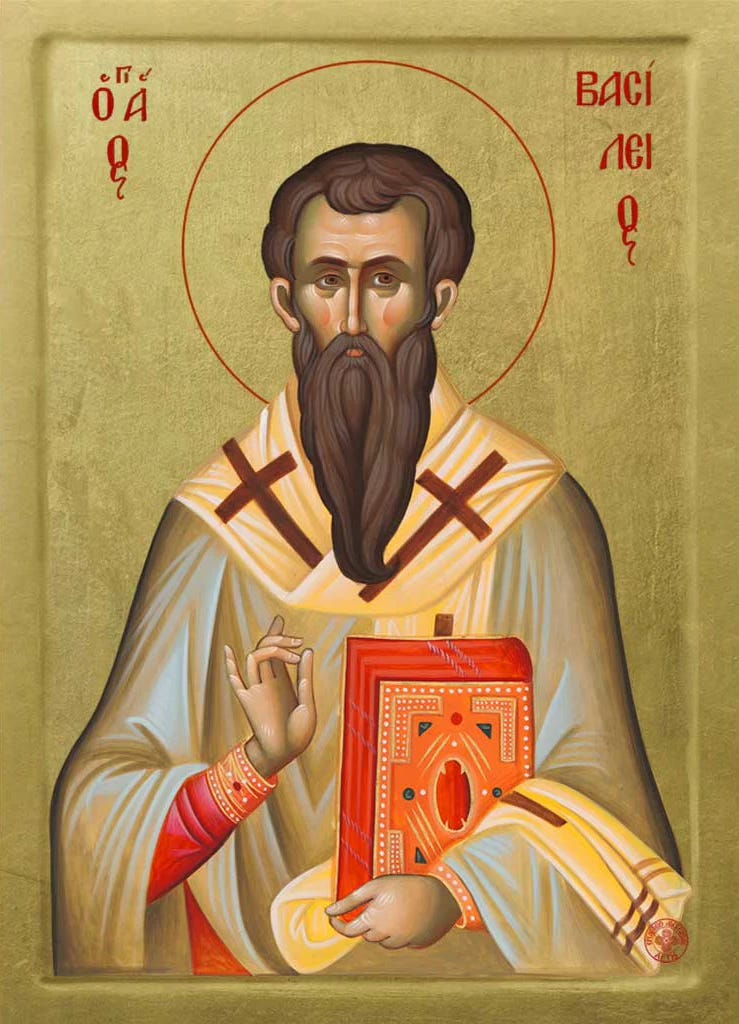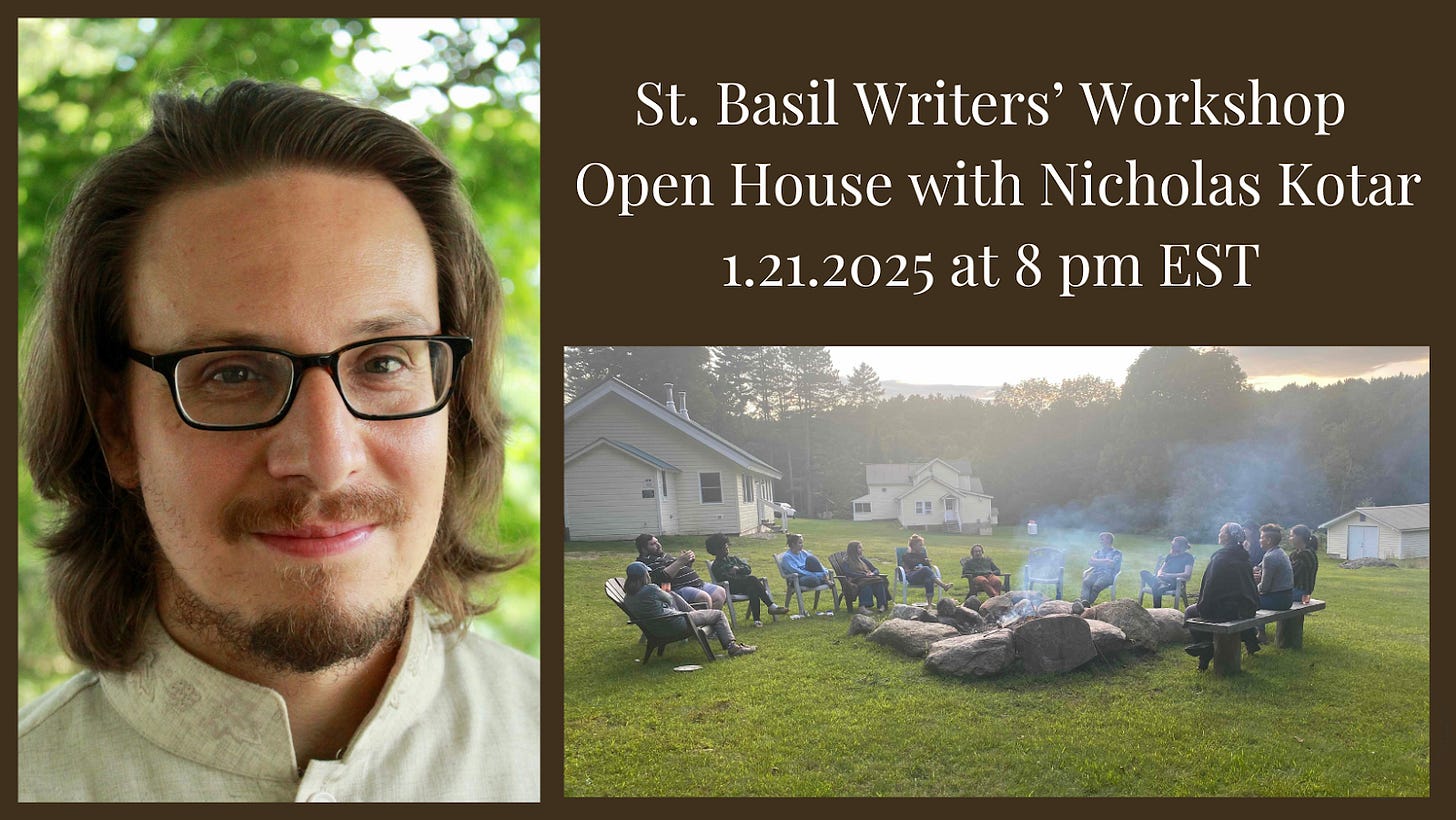Meet St. Basil, Connoisseur of Pagan Literature and Great Luminary of the Christian Faith
December Newsletter
Dear Writers,
If you’ve ever wondered why St. Basil the Great is the patron of our program, allow me to tell you!

Although I might be preaching to the choir here, you might not be surprised to know that one of the most common questions I get from readers is how Christians are supposed to relate to fiction in light of the supposed Patristic interdiction against fantasy, against “creating images in our head.”
People who ask this question assume that there’s a kind of “Patristic consensus” that, at best, discourages reading anything not religious or, at worst, relegates all reading of fantasy to a special region of the Inferno.
Such people might be surprised to hear St. Basil, in his “Address to Young Men on the Proper use of Pagan Literature,” say that young men should read the classics (some of which are just as fantastical as The Lord of the Rings) even before they approach the Scriptures!
(Scandalous!!!)
He offers examples of Moses and Daniel, and how they each became proficient in the pagan wisdom of their respective empires, suggesting that this was a path for us to emulate, not revile.
Essentially, his point is that reading good fiction, poetry, and philosophy allows us to see the searing truths of Scripture (which are as bright as the sun) like the reflected sun in a pool of water. By first becoming accustomed to seeing it this way, we can gradually become more and more ready to stare at the sun directly.
And that’s only scratching the surface of his profound argument, which I break down in more detail in this post.
That’s right. We don’t shy away from discussions on what it means to engage the imagination in the way God intended – this is why St. Basil is our patron saint. Fittingly, we’re opening applications for our next cycle on his feast day on the new calendar – January 1st!
Applications Open in Two Weeks!
Don’t forget! Applications for the St. Basil Writers’ Workshop 2025-2026 open on January 1st. Start prepping your 5,000-word writing sample today!
If you want to learn more about how the in-person retreat and the courses are structured, I invite you to save your spot at our open house on January 21st, 8 pm EST.
Article Spotlight
Is speculative fiction really important enough to spend time reading and writing? Why waste our time indulging in fantastical worlds? Don’t the church fathers warn against flights of fancy?
The answers to these questions aren’t so clear cut, but using St. Basil’s “Address to Young Men,” I outlined a defense for reading and writing speculative fiction in this article for Wood Between Worlds, a new venture that publishes this generation’s Inklings. (Keep your eyes open for exciting announcements about new authors we just signed!)
Book Recommendation
Because we’re celebrating our program patron, St. Basil, in this newsletter, I have a treat for you! You can read the full text of his “Address to Young Men on the Right Use of Greek Literature” for free here:
Storytelling Talks
You can’t have too much St. Basil, right? This talk by Fr. Andrew Stephen Damick and Richard Rohlin is a wonderful accompaniment to St. Basil’s address above, providing an approachable explication and application of the text:
Just in case you couldn’t tell how very important I think it is for Christians in our generation who want to renew a Christian culture to be familiar with St. Basil’s line of thinking…

Come listen to me talk about it live for The Great Tales on January 2nd! I’ll also speak about our program at St. Basil Writers’ Workshop, so if you’re interested in applying, you’ll want to stop by!
Happy listening, reading, and writing!
~ Deacon Nicholas






Thank you for this. St. Basil's Address was one of the first patristic works I ever read!
Deacon Nicholas, where can I learn more about this program? I'm very intrigued and would like to improve my creating writing and reading skills. Many thanks in advance! Jay